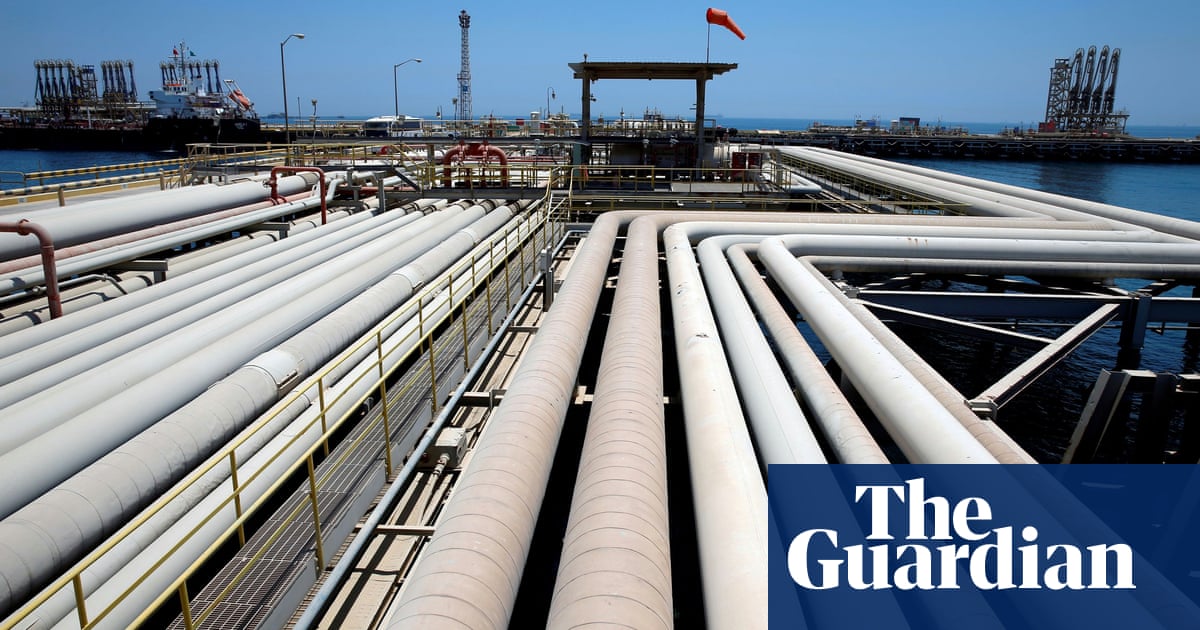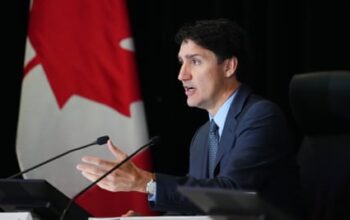
A recent undercover investigation has uncovered Saudi Arabia’s efforts to promote a large-scale investment plan in developing countries, with the goal of increasing demand for its oil and gas. This has sparked criticism, with some claiming that the plan aims to create dependence on these harmful products.
Limited information was available regarding the sustainability of the oil demand programme (ODSP), however, the inquiry revealed specific details of strategies to increase the reliance on fossil fuel-powered vehicles, buses, and airplanes in Africa and other regions, as wealthier nations shift towards renewable energy sources.
The ODSP intends to expedite the growth of supersonic air travel, acknowledging that it consumes three times the amount of jet fuel compared to regular planes. They also plan to collaborate with a car manufacturer to produce a low-cost combustion engine vehicle on a large scale. Additionally, they aim to promote power ships that utilize heavily polluting fuels like heavy fuel oil or gas to supply electricity to coastal communities.
The authority for the ODSP lies with the crown prince of Saudi Arabia, Mohammed bin Salman. This program includes key entities such as the $700 billion Public Investment Fund, the world’s largest oil company, Aramco, the petrochemicals company Sabic, and the most significant government ministries.
The program is primarily promoted as a means of eliminating obstacles to energy and transportation in developing nations and promoting sustainability. This may include initiatives such as distributing gas cooking stoves as a substitute for wood burning.
Unfortunately, all of the proposed initiatives uncovered during the inquiry conducted by the Centre for Climate Reporting and Channel 4 News entail an upsurge in the consumption of oil and gas. A spokesperson stated that this was a top priority.
The leader of the World Bank recently stated that it is crucial for wealthy nations and corporations to assist developing countries in transitioning away from fossil fuels and adopting renewable energy. Ajay Banga emphasized that without this support, it will be impossible to achieve the goal of eliminating carbon emissions by 2050, which has been repeatedly stressed by scientists as necessary to prevent a climate disaster.
The government of Saudi Arabia has announced its dedication to the goals of the Paris agreement, which aim to limit global warming to below 2 degrees Celsius and strive for a maximum increase of 1.5 degrees Celsius. To reach this target, there must be a rapid decrease in fossil fuel emissions and a majority of oil and gas reserves must remain unused. As a result, policies focused on reducing carbon emissions, such as promoting electric cars, present a major challenge to the country’s income from oil production.
One of the main concerns at the upcoming UN Cop28 climate summit, starting on Thursday, is whether countries can follow through on their promise to reduce or eliminate the use of fossil fuels. The current year has seen unprecedented temperatures and extreme weather events that have resulted in loss of life and damage to livelihoods globally.
According to Mohamed Adow, the director of Power Shift Africa, the Saudi government is comparable to a drug dealer attempting to entice Africa into becoming reliant on their damaging product.
Many countries are moving away from using harmful fossil fuels, but Saudi Arabia is struggling to find new customers and is now targeting Africa. This behavior is disgusting.
Africa cannot keep pace with the rest of the world by simply following the lead of polluting nations. This would result in missing out on the advantages of modern energy solutions that Africa could benefit from, given its vast potential for renewable energy. Instead, Africa has the opportunity to use its “latecomer advantage” to make a direct jump towards a truly transformative energy transition.
In 2021, the UN Secretary General António Guterres stated the importance of providing sufficient international aid to African and other developing nations in order for their economies to move away from polluting sources and shift towards a clean, sustainable energy future.
The Ministry of Energy in Saudi Arabia did not provide a response to a comment request.
The English version of the programme’s website briefly mentions it as the oil sustainability programme, while the Arabic version refers to it as the oil demand sustainability programme.
According to the Arabic website, its main goal is to maintain and enhance the use of hydrocarbons as a viable energy source by improving its economic and environmental impact. This will be done while also ensuring that the kingdom of Saudi Arabia has a sustainable transition in its energy mix.
In June, an announcement was made on the Saudi stock exchange regarding a memorandum of understanding between ODSP and the Saudi Industrial Export Company. The initial statement stated that it would allow for “activities related to sustaining the demand for oil.” However, a correction was issued the next day, stating that it would instead enable “activities to increase access to energy.”
Details of the ODSP’s projects were exposed after undercover reporters posed as potential investors and met officials from the Saudi government. This revealed that increasing demand for oil and gas in developing countries was a thread running through the planned projects.
The officials’ presentation outlined a strategy to increase demand in emerging markets by investing in infrastructure and reducing barriers to energy access.
When questioned by the journalists about the goal of creating artificial demand in certain key markets, a spokesperson responded: “Indeed, it is one of our primary objectives that we are striving to achieve.”
We do not think it is feasible for developing nations to bypass the use of fossil fuels, as a well-established infrastructure is necessary to fully adopt electric vehicles.
Ignore the advertisement in the newsletter.
after newsletter promotion
Many African nations currently lack adequate electricity resources to sustain their daily activities. We believe it is important to provide them with the necessary energy for their development, and in the future, they can focus on enhancing or transitioning to more efficient energy sources.
According to officials, the ODSP selected 46 projects based on a criterion called “incremental demand potential”. The programme helped provide the necessary funding for these projects.
The three categories of projects include transportation, utilities, and materials. The third category aims to substitute oil-based plastics for cement, steel, and wood typically used in construction.
An official stated that the goal of the transportation industry is to improve the overall sustainability of fuel used for transportation, including diesel, gasoline, and jet fuel. This includes incorporating road financing into the plan.
Our goal is to expedite and improve the influence and acceptance of internal combustion engine [ICE] technology and optimization.
We also have the chance to make low-cost cars more widely available and popular, particularly in developing countries. Currently, only 3% of people in Africa own cars.
Based on the presentation, the strategy is to collaborate with a car maker in creating and manufacturing an affordable and competitive vehicle that will benefit the kingdom’s oil industry.
The presentation states that the ODSP is focusing on bus, ride-sharing, and delivery services. The objective is to aid in the implementation of ICE fleets in developing nations to meet the growing demand for gasoline and diesel.
The aviation organization, ODSP, is aiming to boost the number of flights by encouraging investments in a budget-friendly airline. Government officials have also announced that they are working on expediting the development of supersonic aviation for commercial use, despite it consuming three times more energy per seat kilometer than traditional subsonic aircraft.
The proposed methods for generating electricity involve the use of “oil-powered mini grids,” which would utilize diesel or heavy fuel oil, according to a statement from an official. There are also plans to invest in ships that function as “floating power plants” and run on heavy fuel oil or gas.
In November, Saudi Arabia formed agreements with Rwanda to stimulate the use of hydrocarbon resources, with Nigeria to enhance cooperation and strengthen their partnership in the oil and gas industry, and with Ethiopia to collaborate on oil supply.
According to Adow, the reason why African nations are easily deceived by this tactic is due to the inability of past polluting countries to fulfill their promises of climate finance.
“We require investment from wealthy nations who boast about their commitment to addressing climate change. Without it, we can anticipate more unscrupulous agreements like this one, which not only puts Africans at risk, but also undermines the global endeavor to achieve a secure and prosperous climate for everyone.”
Source: theguardian.com


